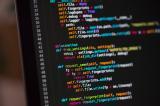Course on the C programming language would typically cover the following topics:
-
Introduction to C: The course would start with an introduction to the C programming language, its history, and its usage.
-
Data types and Variables: Next, the course would cover the different data types in C, such as integers, floating-point numbers, characters, and strings. Students would learn how to declare and initialize variables of different types.
-
Control Structures: The course would cover the basic control structures in C, such as if-else statements, loops, and switch statements.
-
Arrays and Strings: Students would learn how to create and manipulate arrays and strings in C.
-
Functions: The course would cover the concept of functions in C, how to declare and define functions, and how to call them from within other functions.
-
Pointers: The course would cover the concept of pointers in C, how to declare and initialize pointers, and how to use them to manipulate data.
-
Structures and Unions: Students would learn how to create and use structures and unions in C.
-
File Input/Output: The course would cover file input/output operations in C, how to open, read, and write files using file pointers.
-
Dynamic Memory Allocation: The course would cover the concept of dynamic memory allocation in C, how to allocate and deallocate memory using malloc() and free() functions.
-
Debugging and Error Handling: The course would cover how to debug programs in C using debuggers and how to handle errors using error handling techniques.
-
Advanced Topics: The course may cover some advanced topics such as multi-dimensional arrays, function pointers, and recursion.
In addition to the theoretical concepts, the course would also include practical exercises and programming assignments to help students apply the concepts learned in class. The course may also include project work where students can apply their C programming skills to develop a real-world application.





